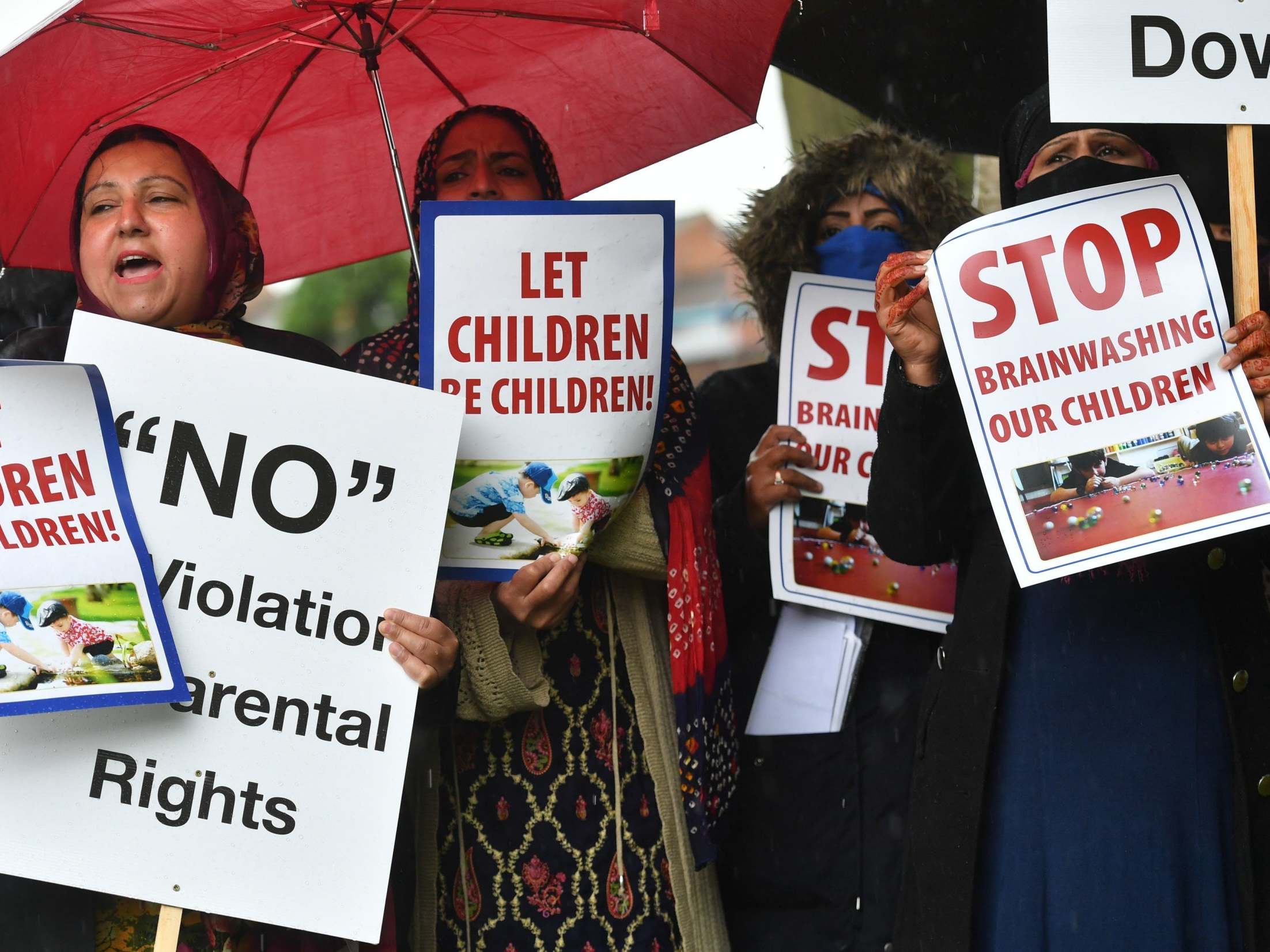Primary school LGBT+ protests have been banned – but the tensions haven’t gone away
Analysis: Eleanor Busby looks at how the row that led to demonstrations at the school gates began


Teachers, campaigners and politicians across the UK will have breathed a collective sigh of relief when a High Court judge made a ban on protests outside a Birmingham school permanent.
For months and months, the primary school has faced repeated demonstrations against LGBT+ inclusive classes – with protesters arguing children are too young to learn about same-sex families.
The High Court’s decision to rule in favour of a permanent exclusion zone around Anderton Park will bring an end to the disruption caused by the noisy protests outside the school gates.
But how did we get to the point where a court case was necessary to resolve a bitter row between parents who did not feel consulted and teachers who were trying to fulfil their legal duties?
Anderton Park Primary School has been at the heart of a long-running battle over equality lessons but the first protests actually began at a different school in Birmingham 10 months ago.
Parents, who opposed an equality programme which uses story books to teach primary school children about same-sex couples, began demonstrating outside Parkfield Community School.
It was not long before the protests spread to Anderton Park where children, teachers and parents had to walk past demonstrators with signs, megaphones and a PA system on a daily basis.
School leaders received threats, teachers had to seek counselling, and Anderton Park had to close early for half term in May amid escalating protests.
Politicians, including ministers, called for the disruption to end – but school leaders criticised the Department for Education (DfE) for not taking stronger action to support equality teachings.
Protesters outside Anderton Park say they’ll continue their fight as they feel their concerns about curriculum content, including LGBT+ teachings, have not been considered by school leaders.
Although these events could be regarded as a Birmingham issue, school leaders have warned of an “organised campaign” against LGBT+ classes across the country – including in London and Manchester.
The opposition grew after the government launched new curriculum guidance on relationships and sex education, in which it says secondary schools are expected to teach students LGBT+ content.
The DfE is also encouraging primary schools to teach children about different families, including those with same-sex parents, as part of compulsory relationship classes coming in next year.
The changes have sparked fears among parents about what exactly their children will be taught. And in turn, this has led to some mistruths being spread online, prompting even more concerns.
So the ban at Anderton Park will bring some peace and quiet to classes (and it is a significant win for educators) but the row over the age-appropriateness of relationship teachings is likely to continue. And tensions could still build and spread when compulsory classes come into effect in September.
Join our commenting forum
Join thought-provoking conversations, follow other Independent readers and see their replies
Comments